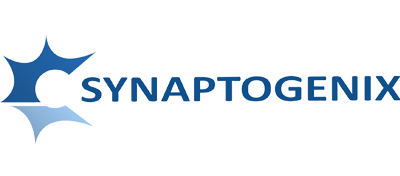Neurotrope to Present Bryostatin Phase 2 Data in an Oral Presentation at AAIC 2017 Meeting
The presentation will be given by Dr. Martin R. Farlow, MD, Vice-Chairman for Research in the Department of Neurology, Indiana University School of Medicine, Indiana Alzheimer Disease Center. It will feature results from Neurotrope’s recently completed Phase 2 study of bryostatin – a protein kinase C epsilon (PKCε) modulator – in the treatment of patients with moderate-severe to severe AD. The study was designed to assess the dosing, safety, and Neurotrope to Present Bryostatin Phase 2 Data in an Oral Presentation at AAIC 2017 Meeting
NEW YORK – June 29, 2017– Neurotrope, Inc. (NASDAQ: NTRP) today announced the acceptance of a late breaking oral presentation at the Alzheimer’s Association International Conference 2017 (AAIC) being held in London from July 16 – 20, 2017. Preliminary efficacy for 2 different doses of bryostatin versus placebo.
Details of the presentation are as follows:
Date: Wednesday, 19 July, 2017
Presentation Time: 4:15 PM to 4:30PM
Location: Excel London Auditorium
Session Name: DT-02 Developing Topics: Clinical Trials
Presentation Title: DT-02-01: Effect of Bryostatin-1 on Cognition and Daily Living Tasks in Moderate to Severe Alzheimer’s disease Preliminary Report of a Phase 2 Study.
“Our understanding of bryostatin, its target PKCε, and the roles that PKCε plays in synaptogenesis, prevention of neuronal death, and anti-amyloid, anti-tau activity has emerged from discoveries that have been made over nearly three decades of research and development at the National Institutes of Health, Blanchette Rockefeller Neurosciences Institute at WVU, and at Neurotrope,” said Dr. Daniel Alkon, MD, President and Chief Scientific Officer of Neurotrope. “We, at Neurotrope, are delighted to have this opportunity to share the molecular basis of our research, along with the results of our Phase 2 study, with the world leaders in AD who will be attending the AAIC meeting in London.”
About Bryostatin
Bryostatin-1 is the first PKCε modulator to be tested in a phase 2 clinical study for patients suffering from moderate to severe AD — a difficult to treat population.
The rationale for researching this novel mechanism in AD results from in vitro and in vivo models of AD demonstrating that modulation of PKCε by Bryostatin-1 enhances synaptogenesis and prevents neuronal death. As synaptic loss is tightly correlated with cognitive impairment in AD, this attribute of the molecule made bryostatin an intriguing candidate for additional investigation in dementia. Furthermore, preclinical studies also demonstrated bryostatin reduces toxic Aß levels, prevents plaque formation, inhibits tau phosphorylation, and enhances cognition. Thus the multimodal effects of this first PKCε modulator offer an attractive new mechanism to study in AD with the ultimate goal to slow or prevent the progression of disease.
About Neurotrope
Neurotrope is at the forefront of developing a new approach to combatting AD and other neurodegenerative diseases. The Company’s world-class science offers the potential to realize a paradigm shift to overcome one of today’s most challenging clinical problems — finding a way to slow or even prevent the progression of AD.
In addition to the Company’s Phase 2 trial of bryostatin-1 in moderate to severe AD, Neurotrope has also conducted preclinical studies of bryostatin as a potential treatment for Fragile X Syndrome, Niemann-Pick Type C disease and Rett Syndrome—three rare genetic diseases for which only symptomatic treatments are currently available. The FDA has granted Orphan Drug Designation to Neurotrope for Bryostatin-1 as a treatment for Fragile X Syndrome. Bryostatin-1 has already undergone testing in more than 1,500 people in cancer studies, thus creating a large safety data base that will further inform clinical trial designs in AD.
Forward-Looking Statements
Any statements contained in this press release that do not describe historical facts may constitute forward-looking statements. These forward-looking statements include statements regarding the Phase 2 study and further studies, and continued development of use of Bryostatin-1 for Alzheimer’s dementia and other cognitive diseases. Such forward-looking statements are subject to risks and uncertainties and other influences, many of which the Company has no control over. These statements are subject to the risk that further analyses of the Phase 2 data may lead to different interpretations of the data than the analyses conducted to date and/or may identify important implications of the Phase 2 data that are not reflected in these statements. Clinical trial data are subject to differing interpretations, and regulatory agencies, medical and scientific experts and others may not share the Company’s views of the Phase 2 data. There can be no assurance that the clinical program for Bryostatin-1 will be successful in demonstrating safety and/or efficacy that we will not encounter problems or delays in clinical development, or that Bryostatin-1 will ever receive regulatory approval or be successfully commercialized. Actual results and the timing of certain events and circumstances may differ materially from those described by the forward-looking statements as a result of these risks and uncertainties. Additional factors that may influence or cause actual results to differ materially from expected or desired results may include, without limitation, the Company’s inability to obtain adequate financing, the significant length of time associated with drug development and related insufficient cash flows and resulting illiquidity, the Company’s patent portfolio, the Company’s inability to expand the Company’s business, significant government regulation of pharmaceuticals and the healthcare industry, lack of product diversification, availability of the Company’s raw materials, existing or increased competition, stock volatility and illiquidity, and the Company’s failure to implement the Company’s business plans or strategies. These and other factors are identified and described in more detail in the Company’s filings with the SEC, including the Company’s Annual Report on Form 10-K for the year ended December 31, 2016 and on Form 10-Q for the quarter ending March 31, 2017. The Company does not undertake to update these forward-looking statements.
Please visit www.neurotropebioscience.com for further information.
Contact information:
Investors
Jeffrey Benison, Director of Corporate Communications
Neurotrope Bioscience, Inc.
973.242.0005 Ext. 101
jbenison@neurotropebioscience.com
Media
James Heins
Senior Vice President
ICR Healthcare
203.856.2121
james.heins@icrinc.com








